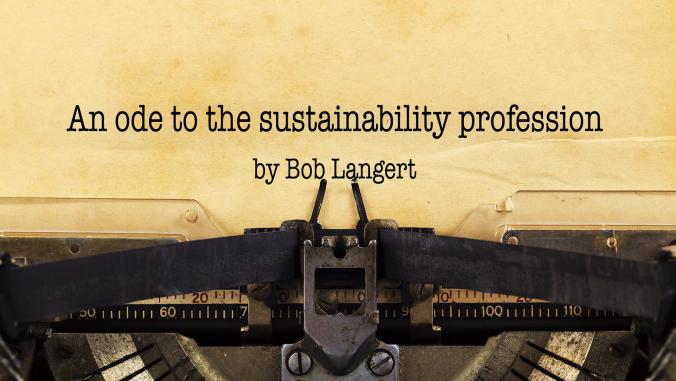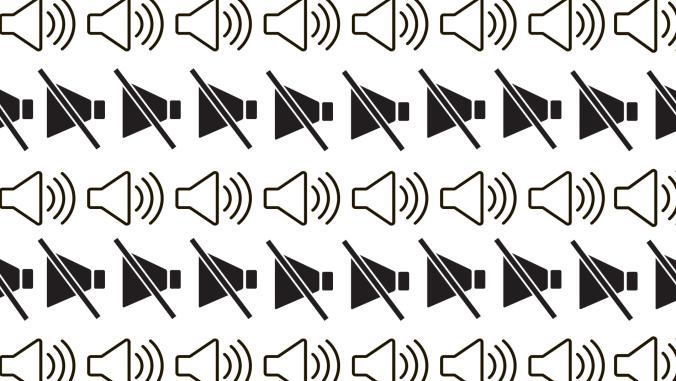10 Minutes with Neil Hawkins, Dow Chemical
The longtime sustainability exec on valuing nature and navigating collaborations.

This column is about the "how" of sustainable business, featuring one significant change and how a leader made it happen. First up is Neil Hawkins, corporate vice president of sustainability of The Dow Chemical Company. My next column is with Dow’s NGO "Valuing Nature" partner, Glenn Prickett, co-chief external affairs officer at The Nature Conservancy, who I interviewed separately.
Bob Langert: What’s the "What"?
Neil Hawkins: We call it the Valuing Nature goal, a huge goal that is extremely motivating to our employees and to our stakeholders. It is part of our Dow 2025 Sustainability Goals.
We also call it our "billion-dollar goal" because we seek to create $1 billion of business value. I'm talking about real economic value for Dow, while also building nature value through a series of projects.
Already, at three years in (of 10 years), we're at $200 million of economic value for Dow, while maximizing ecosystem services value benefitting both Dow and communities near Dow sites.
Langert: How did "Valuing Nature" start?
Hawkins: You have to go back almost a decade when we first started thinking about this. It was a very unmotivating playing field. You did not see much corporate action in this space. You had some policy statements but no real action.
We have a group called the Sustainability External Advisory Council, which has been in existence for 25 years. They challenged us. They said, "You need to be focusing a lot more on nature."
Langert: What makes such a breakthrough possible?
Hawkins: I believe "outside in" and long-term relationship management are what's critical.
Within companies, if you don't deliberately force the outside in, you can get too comfortable with your own viewpoints. We did a lot of listening to our value chain, customers, suppliers, competitors, academics and NGOs — every stakeholder you can think of.
I'm a big believer that relationships are also what make big breakthroughs possible. A relationship is not something you create instantaneously. You have to work over long periods of time together with people, on the same side of the table, trying to solve problems. And a relationship is something you pay into, and I don't mean money, I mean with effort. It's like a marriage. You may not get along as well as you would hope all the time, but if both parties are trying to work together, they can iron through the rough spots.A relationship is not something you create instantaneously. You have to work over long periods of time together with people.
About 10 years ago, Dow and TNC had a project in Brazil to work on rainforest replanting together, and that helped build the relationship. I also knew Glenn Prickett very well because of our board work at the Keystone Center. I went to Glenn, and we talked about doing a collaboration. So, even before we ever talked about this project, you're probably looking at five years of serious relationship investment that happened before we ever explored having a large collaboration.
Langert: How to achieve internal credibility?
Hawkins: First off, you have to deliver results. If you don't do that, and all you do is have a bunch of ideas that aren't delivering any results, you won’t build credibility.
I would also say you want to build incrementally towards doing large projects. You don't start with the biggest collaboration of your life in year one.
Langert: How to start and focus?
Hawkins: I was just talking to a young employee this morning here in my office who has switched into sustainability in China, and she's just overwhelmed with the magnitude of what she feels she does not know.
I told her, "If you worry about achieving perfection before you do anything, you're never going to do anything." I said, "Focus on getting business projects, get your first project where you're helping move a product to a customer, and helping them solve their sustainability challenges." And I said, "By the time you've done 20 of them, you're starting to look like an expert. But if all you do is sit around and read textbooks, you're not going to ever be good enough in your own mind to do a project."
So, I said, "Forget about the textbooks, focus on actually doing."
Langert: Advice for MBAs?
Hawkins: I think results delivery is really important. We have many MBAs that come through our internship program. Many think they can step out of the university and run a big corporate sustainability program. And I tell them, you cannot do that, and if you think you can do that, you definitely can't do it. You need to really understand the business first.
Langert: How to deal with collaboration rough spots?
Hawkins: What happens within these kinds of collaborations is you hit rough spots. And when you hit those rough spots, you’ve got to call everybody together, get them in a room, talk about what happened, what went wrong, and then memorialize agreements. And memorialize measurements so that you can keep the collaboration on track. A couple of times we had to have reset and revival meetings. When you have the strong relationships, you can do that.
Langert: What’s an example of how you worked through a specific conflict?
Hawkins: At one juncture, TNC focused only on land conservation and pushed that aspect.If we can make this goal about creating economic value for Dow, that will also create nature value, we will change the culture and change everything inside the company.
I told them, "Look, if we can make this goal about creating economic value for Dow, that will also create nature value, we will change the culture and change everything inside the company.” But I said, "If all we do is say we're going to preserve 40,000 acres and achieve that conservation goal, you're not going change the culture."
Some fought back a little at first, but they came around once we got into executing the goal itself. Dow has a strong culture around measuring and achieving goals, so this was a fantastic way to approach the challenge of valuing nature. I'd say I'm in a company of environmentalists. But to unleash the environmentalists, we needed a metric and goal that bolsters nature while making more money for Dow. That's win-win. And that kind of alignment is breakthrough.





